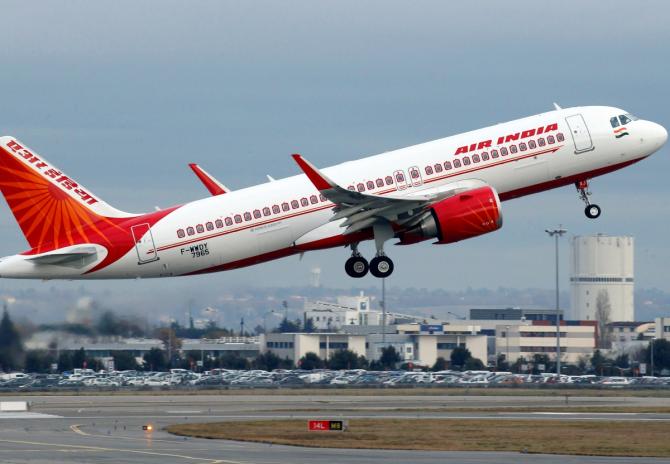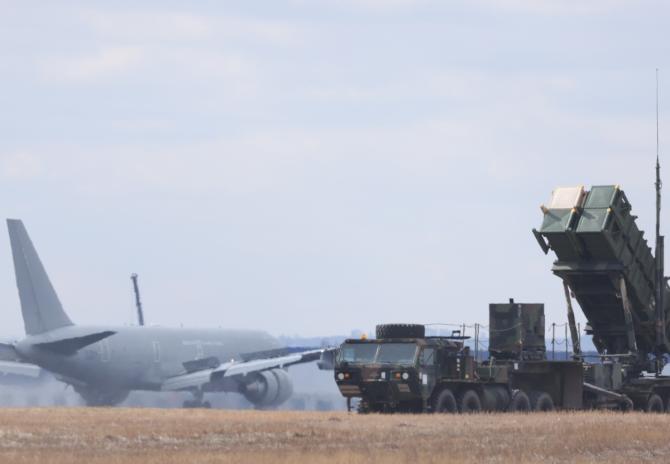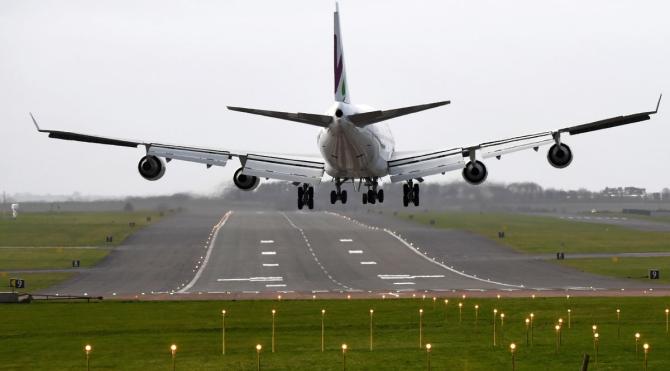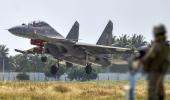There is increasing friction between the IAF's military requirements, and the AAI's need to provide infrastructure to many more airlines.

The relationship between civil and military aviation is so close that it often goes unnoticed.
As many as 23 airports regularly used by civil airlines, are Indian Air Force or Indian Navy bases.
Landing in Pune, Goa, Srinagar or Chandigarh, even frequent fliers seldom realise they are at a military base, even if they notice IAF fighters parked at a distance.
Their plane parks in what is called a 'civil enclave' where passenger facilities like check-in counters and baggage collection are located.

On June 3, the government announced that seven more military airports would increase their contribution to civil aviation by giving working assistance and land to the Airports Authority of India (AAI).
'In line with the government's programme of Ude Desh ka Aam Nagarik (UDAN) and to facilitate the Regional Connectivity Scheme (RCS), the IAF has facilitated working permission and handing over of defence land by Ministry of Defence (MoD) to Airports Authority of India at seven locations, viz, Bagdogra, Darbhanga, Adampur, Utarlai, Sarsawa, Kanpur and Gorakhpur,' said an MoD release.
The AAI will utilise these IAF airfields to operate civil flights under the RCS UDAN scheme.
The MoD is handing over approximately 40 acres of land for development of civil terminals and necessary airfield infrastructure for commencing RCS flights, said the MoD.
'Moreover, IAF is also in the process of handing over defence land for expansion of civil airports at six locations, over and above those covered under RCS, viz. Srinagar, Thanjavur, Chandigarh, Leh, Pune and Agra. This will facilitate expansion of the existing terminals and facilities to accommodate enhanced number of passengers and cargo infrastructure,' stated the MoD.
The ministry of civil aviation believes that, with new airlines flying to new destinations in India's aviation boom, it makes good economic sense to create 'civil enclaves' in existing military airfields, rather than spend Rs 500 crore-Rs 600 crore (Rs 5 billion to Rs 6 billion) building a separate airport.

The IAF uncomplainingly obliged when this meant including just a couple of civil flights a day. But now, with numerous scheduled airlines jostling for business, there is increasing friction between the IAF's military requirements, and the AAI's need to provide infrastructure to many more airlines, all clamouring for more operating time and better civilian facilities.
Newer and bigger airliners make newer and bigger demands on military airfields.
Instead of the 6,000-foot-long runways at many IAF bases, today's wide-bodied aircraft need 7,500 feet. And aprons (parking areas in front of terminal buildings) that accommodated two earlier-generation aircraft, must now be expanded to cater to three or four larger modern aircraft.
AAI officials complain, off the record, that civil aviation growth is being stunted by the IAF's reluctance to make space for civil operations.
They cite examples like Pune, which is both a home base of the IAF's front line Sukhoi-30MKI fighters, as well as a fast-growing civilian traffic hub.
The IAF has only partially granted airlines' requests for landing and take-off slots, because morning and evening timings that suit passengers clash with the training schedules of Su-30MKI fighters.
Air traffic controllers are another sore point: The IAF says its ATCs are overworked just handling fighter training.
With restrictions on how long an ATC can be on duty, the IAF doesn't have enough manpower to extend operating hours for civil traffic.
Feature Presentation: Rajesh Alva/Rediff.com











 © 2025
© 2025